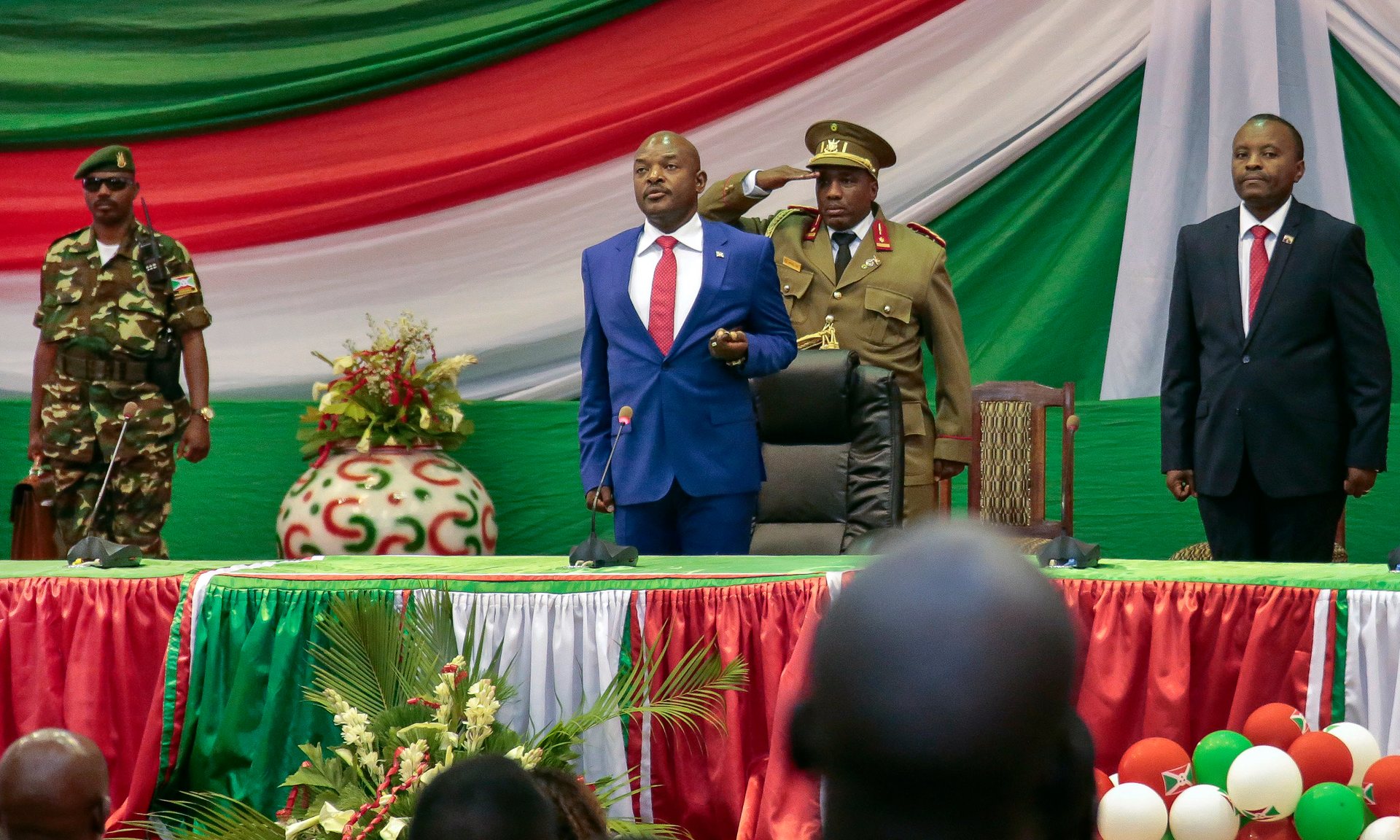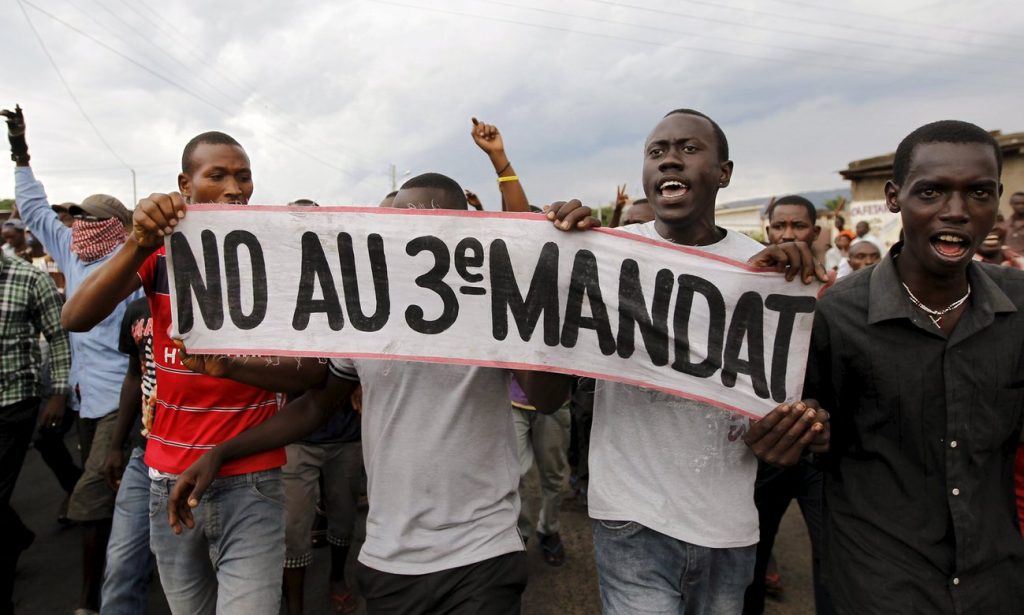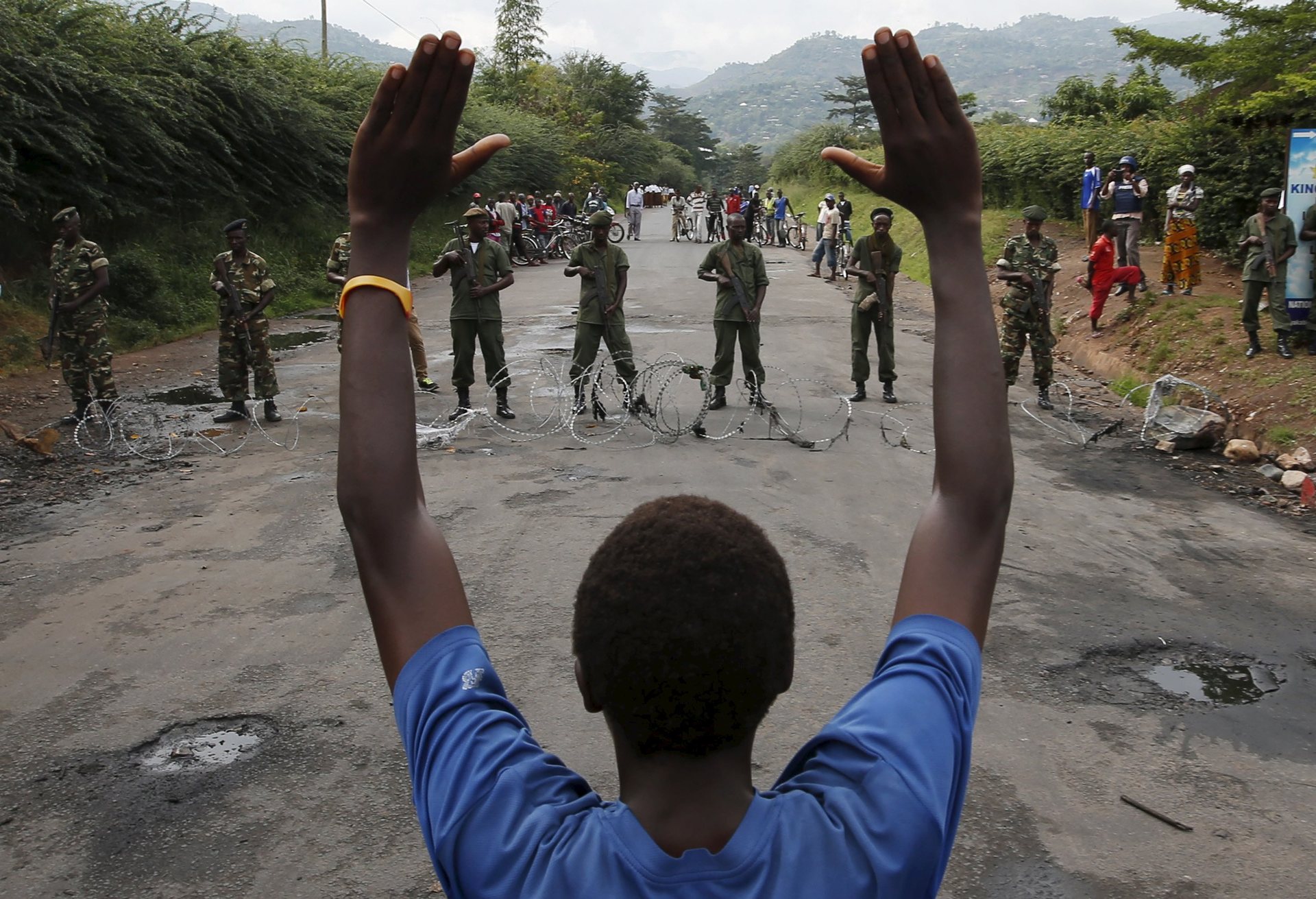In April [2015] opponents of [President Pierre Nkurunziza’s] third term began to organise. The ruling party organised two big demonstrations supporting a third term. These were more than counterbalanced by the decision of the Catholic church to oppose the idea, by the creation of the “Stop the Third Term” movement by 15 organisations, and by pressure from abroad, notably from the UN secretary general and the American secretary of state.
On 30 April the constitutional court gave Nkurunziza the decision he wanted, despite having earlier endorsed the Arusha accord’s [a peace deal signed in Arusha, Tanzania, in 2000] clear indication that presidents should serve for only two terms. The vice-president of the court, Sylvère Nimpagaritse, fled the country saying that the six other members faced “enormous pressure and even death threats”. His brave remarks effectively destroyed the president’s chances of having the election result seen as acceptable by his critics inside the country and abroad.
The following morning demonstrators took to the streets. Mostly young men, Tutsi and Hutu, they set up road blocks and effectively stopped normal life in the capital. The police reacted ferociously and were supported by members of the party youth league, the imbonerakure.
On 3 May, the government marked world press freedom day by banning African Public Radio [a public station in Burundi, known by its French abbreviation RPA] from broadcasting and stopping other free radio stations from broadcasting outside the capital. They also closed the Maison de la Presse [a group that supports and defends the press], so the journalists had to meet instead at the premises of Iwacu [a weekly Burundian journal], whose courageous editor, Antoine Kaburahe, said in his speech: “The independent media opened their columns and their radios to the CNDD-FDD [the main rebel movement, which is now the governing party] when it said it was fighting for freedom. Today they are the ones who are closing our radios and stopping us from working.”
Then, on 13 May, came the day of reckoning. Iwacu reported that a column of armoured cars and pick-ups carrying machine guns drove into town, followed by an immense crowd of jubilant demonstrators. RPA began broadcasting again. Crowds surrounded police headquarters to liberate their colleagues.
The attempted coup was led by Major General Godefroid Niyombare, whom the president had dismissed as head of security three months earlier. He announced that Nkurunziza had been deposed to “save the Arusha accord” and the government dissolved by the forces vives de la nation for illegally standing for re-election and for many other wrongs committed.
But the army was not united. Forces loyal to the president – and these included the chief of staff, General Prime Niyongabo – prevented Niyombare from taking the state broadcaster, RTNB, which meant that the news of the coup did not reach the provinces. The airport was only closed briefly. By the evening the coup had failed. Hopes that had been raised high were quickly dashed.
That night the independent radio stations were physically attacked. RPA’s premises and equipment were set on fire, Radio Bonesha and Télé Renaissance were also smashed up and Radio Isanganiro closed down. The president, who had been away at a meeting of the East African Community in Dar es Salaam, returned more determined than ever to crush his opponents.
Those in the ruling party who had the temerity to oppose Nkurunziza’s third term fled. Two hundred students tried to get refuge in the US embassy. All the staff of the free media were to be found in Kigali, Rwanda. The World Bank and the IMF threatened to leave the country. Belgium withdrew its funding of the elections and threatened to stop all bilateral aid and collaboration with the police. The Catholic church announced that it would not cooperate with the electoral process. Calls for elections to be postponed came from the East African Community, the African Union, the US and the UN, but the government was determined to go ahead and simply added to the budget deficit to pay for them, even appealing for donations on Facebook.
The final dates chosen were 26 June for the communal and parliamentary elections and 15 July for the presidential. Even before this new crisis had blown up there had been a total determination on the part of the ruling party to win these elections and continue ruling. Ten years of almost uncontrolled corruption had allowed the big military men to grow rich. They knew they could be prosecuted and stripped of their wealth if the CNDD-FDD were to lose. As many [voters] had no identity cards, a million and a half of these had been distributed, in some areas only to party supporters, and often to people too young to vote.
The government counted on the fact that there was no appetite on the part of the people to return to violence and therefore that the mere threat of force from their side was enough to discourage voters from taking risks. The controversial arming of the youth wing – denied by the government – was thus a kind of insurance policy and a reminder that it could be dangerous to vote against the regime. Visits and meetings of opposition parties up country had long been restricted or sabotaged. By the time of the election the heavy police presence in the “hot” parts of town, coupled with the desperate economic situation, meant that the demonstrations were diminishing.

Photograph: Gildas Ngingo/AP
The government need not have worried about the result. The conditions for a fair election on 26 June were absent and the ruling party won a large majority. The results of the presidential election on 15 July were also no surprise, with Nkurunziza winning 69% on a 73% turnout.
As this book goes to press tension and fear in the country continues to increase. The president’s ultimatum on 2 November, directed at the opposition strongholds in Bujumbura and threatening to attack and confiscate arms, has led to a number of deaths and to many families fleeing their homes. Rwandan President [Paul] Kagame’s bitter criticisms of Nkurunziza have added to the explosive atmosphere. The economy continues to deteriorate and it is not only the poor who are getting poorer. International news coverage of the situation is increasing and perhaps the world will start to take Burundi’s latest crisis seriously.
- Nigel Watt worked in Burundi for several years and was formerly director of the Africa Centre in London.


